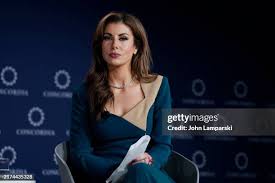
Introduction
Morgan Ortagus has emerged as a prominent figure in American politics and media in recent years. As a former spokesperson for the U.S. Department of State and a political analyst, her insights carry weight in discussions about foreign policy and national security. Understanding her contributions is essential, particularly in a landscape where political narratives are rapidly evolving.
Early Life and Education
Born on July 10, 1982, in Auburndale, Florida, Morgan Ortagus graduated from the University of Florida with a Bachelor of Arts degree in political science. She later earned her MBA from the Johns Hopkins University. Her educational background laid a strong foundation for her subsequent career in government and consulting.
Career Highlights
Ortagus began her career as a public affairs officer in the U.S. Agency for International Development (USAID). In this role, she gained firsthand experience in addressing global challenges, a theme that would permeate her career. She later served in the U.S. Navy Reserve, further deepening her commitment to national service.
In 2019, Morgan Ortagus was appointed as the spokesperson for the U.S. State Department under Secretary Mike Pompeo. During her tenure, she navigated complex geopolitical discussions and played a significant role in communicating U.S. foreign policy initiatives, focusing on issues like international trade, economic diplomacy, and the relationship with China.
Media Presence and Political Involvement
Beyond her government role, Ortagus has established herself as a respected voice in the media. She regularly appears as a political analyst on major news networks, providing insights on current events and political strategies. Her ability to articulate nuanced positions on key issues has made her a sought-after commentator.
In addition to her media engagements, Morgan Ortagus has expressed interest in running for political office, symbolizing a shift towards younger voices in politics. Her engagement with grassroots movements and Republican fundraising efforts suggests that she may shape future campaign strategies, particularly among millennial voters.
Conclusion
Morgan Ortagus represents a new wave of political leadership characterized by a blend of military experience and media savvy. As political landscapes continue to shift, her potential candidacies and influence in policy discussions will be of significant interest to many. Observers should keep an eye on her trajectory, as it could indicate broader trends in American political dynamics, especially among younger constituents. Thus, Morgan Ortagus not only reflects contemporary political values but also has the potential to shape the future conversation around national and international policies.



